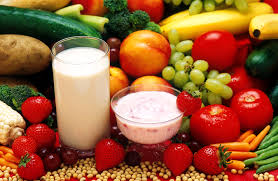
by Gill | Jul 7, 2015 | Natural Facts
Introduction: New research is exploding into scientific journals detailing exciting ways in which foods interact with the expression of our genes. In fact, there is a whole new field of study known as “nutrigenomics” researching the effects of foods and food...

by Gill | Jun 23, 2015 | Natural Facts
Watch the trailer here

by Gill | Jun 23, 2015 | Featured, Natural Facts
Introduction Vitamin D has a well-established role in calcium metabolism and bone health, but recently there has been a great deal of research looking at the effect of vitamin D on other body tissues, especially immune cells. It is now known that there are vitamin D...

by Gill | Jun 9, 2015 | Natural Facts
Introduction: A recent study highlights the value of whey protein in helping to maintain muscle mass during intentional weight loss, an extremely important goal in achieving long-term diet success. Whey protein ingestion has also been shown to reduce feelings of...

by Gill | May 12, 2015 | Natural Facts
Introduction Nuts and seeds are rich in nutrients and phytochemicals, but they are also high in fat. So, many people avoid nut consumption out of fear that it will counteract their efforts to achieve or maintain their ideal body weight. Large population studies have...

by Gill | Apr 28, 2015 | Most Recent, Natural Facts
Introduction: A new study published in the International Archives of Medicine adds to the growing data supporting the benefits of dark chocolate in promoting weight loss. Of all the foods available on planet Earth, perhaps the most magical (and interesting) is...









